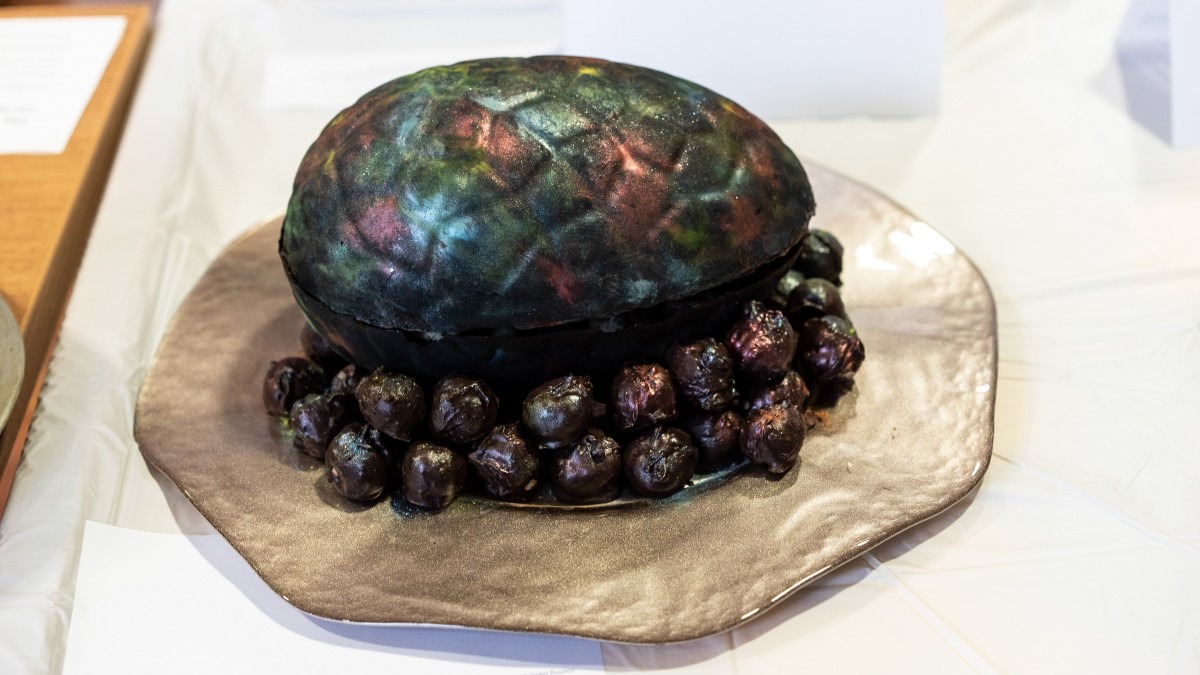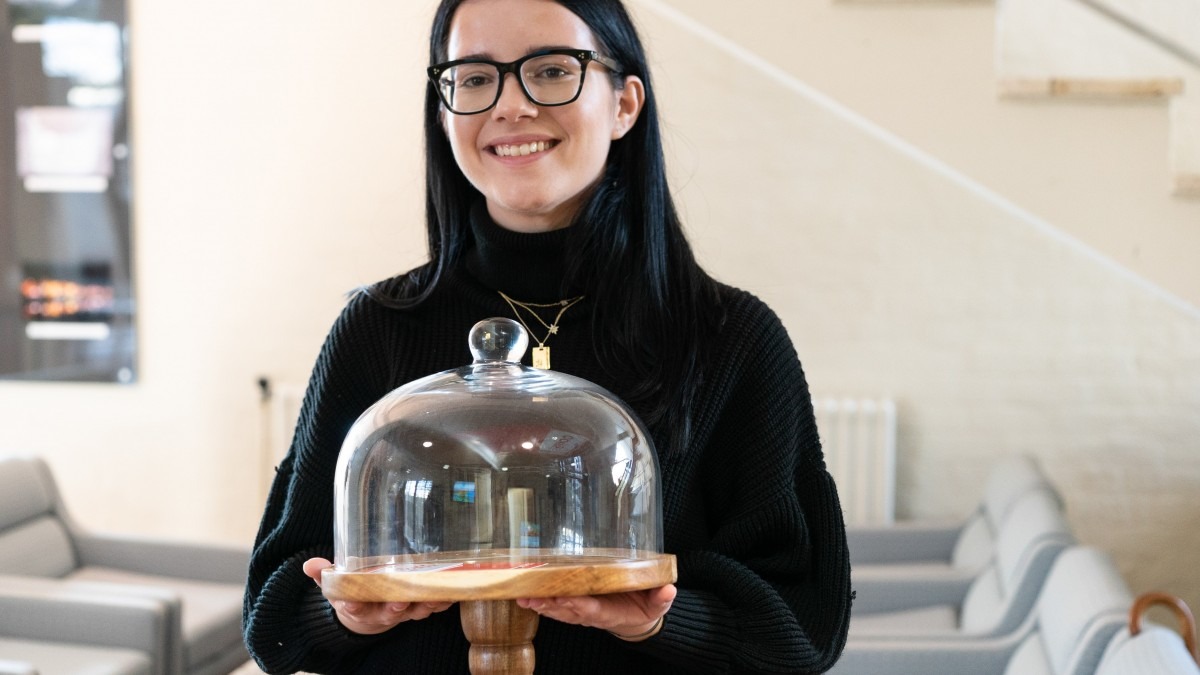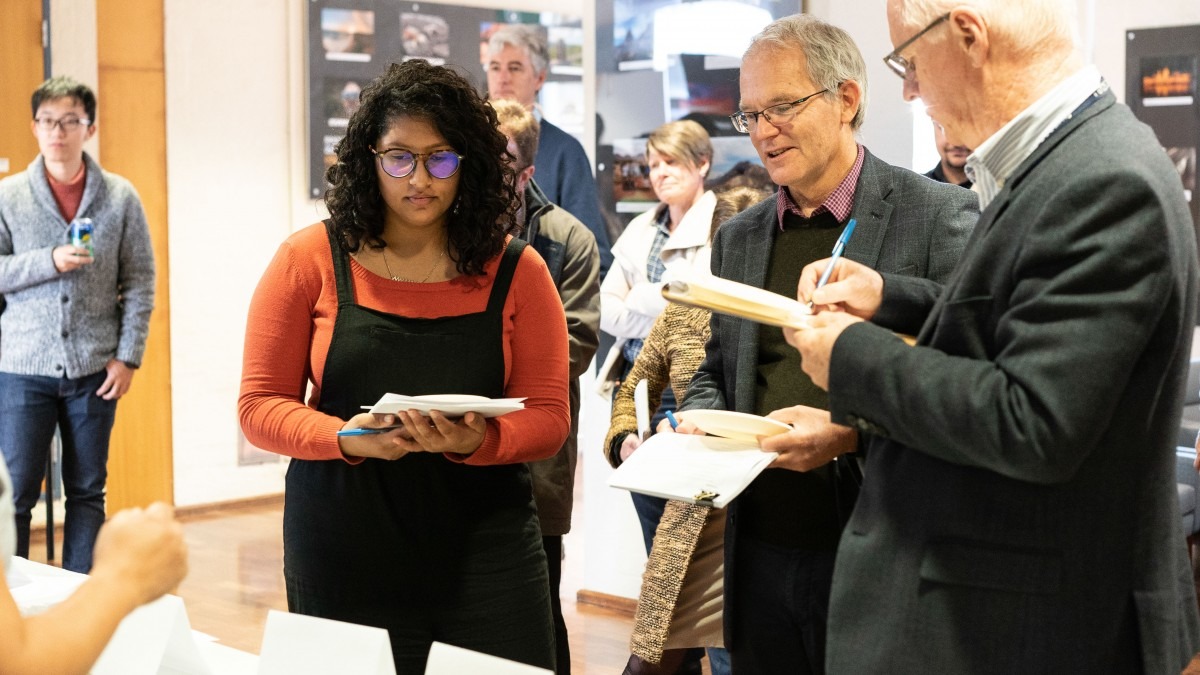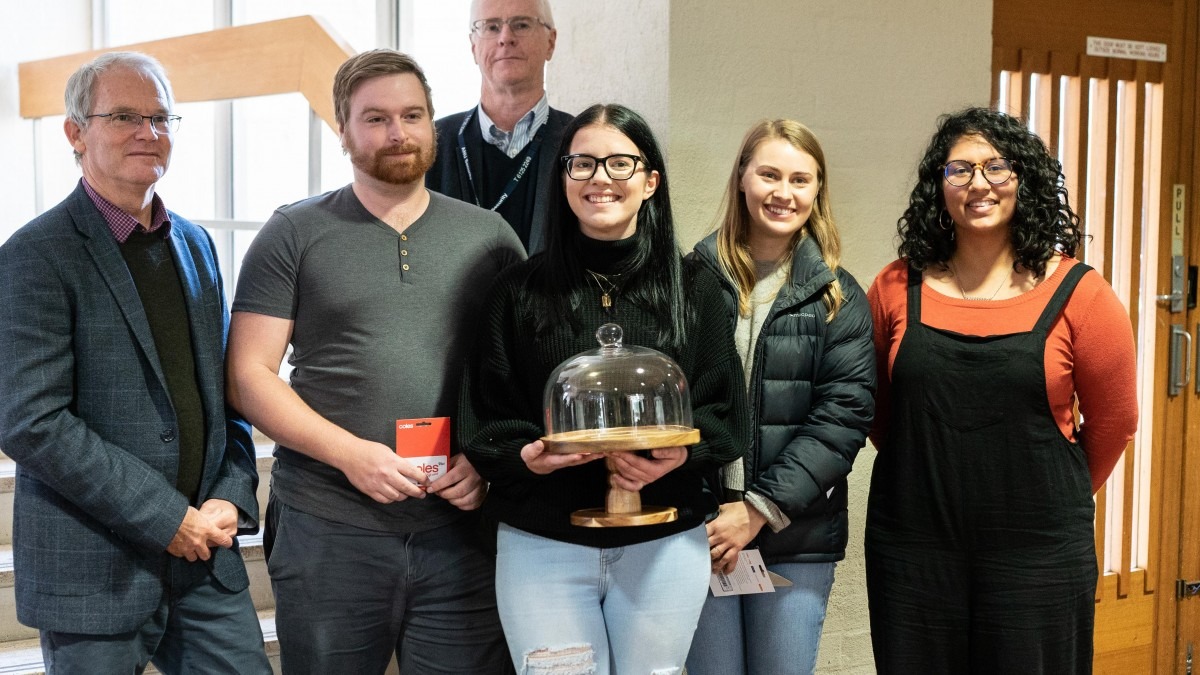Bake your PhD 2019
It’s not every day that a student asks someone to eat their thesis.
More specifically, asks several people to eat a cake representing their research.
That’s just what students of the Research School of Earth Sciences were asked to do, for the annual Bake your PhD competition.
The comp forms part of their higher degree by research student conference. Judges included Deputy Vice-Chancellor (Research and Innovation) Professor Keith Nugent, RSES School Director Professor Steve Eggins, and previous champion Tharika Liyanage.
Cakes were judged according to how well they depict the research, creativity, and of course how tasty they were.
Professor Nugent was met with gasps around the room when he declared his conflict of interest (pre-judging): he does not like chocolate very much.
Despite this, arguably the chocolatiest cake of them all was declared winner.
PhD student Božana Pašić walked away with first prize for her depiction of the internal structure of black opals found at Lightning Ridge.
A chocolate egg dome, mimicking the “play-of-colour” diffraction of opals, was filled with cheesecake balls to represent the two opposing views for the internal structure of precious black opal (an ongoing debate).
Science was apparently integral not only to the research but building of the cake itself, with vodka and edible glitter pigments (lustre dust) needed to imitate the way opals diffract light. Among many things, she learnt:“The structural integrity of chocolate is not great.”
Most importantly, the competition forces research students to come down from their “academic cloud nine”, and really break apart their work to help the wider public understand it.
“You think you know something about your PhD until you have to tell someone about it”, explains Ms Pašić.
Runners up were Rebecca McGirr for her depiction of gravity data in Antarctica, and Robin Gruen who made a cake to represent some of his experiences on an Antarctic voyage.
All of this year’s cakes were of an astounding quality, as judge Tharika Liyanage comments:
“We were really impressed with the level of creativity and depiction of science.
“(the competitors) were getting really elaborate with their presentation of their research.
“There were lots of layers to it, literally.”
It’s safe to say, that at the end of the day everyone walked away with a lot more knowledge about these student’s research projects.
And very satisfied stomachs.




